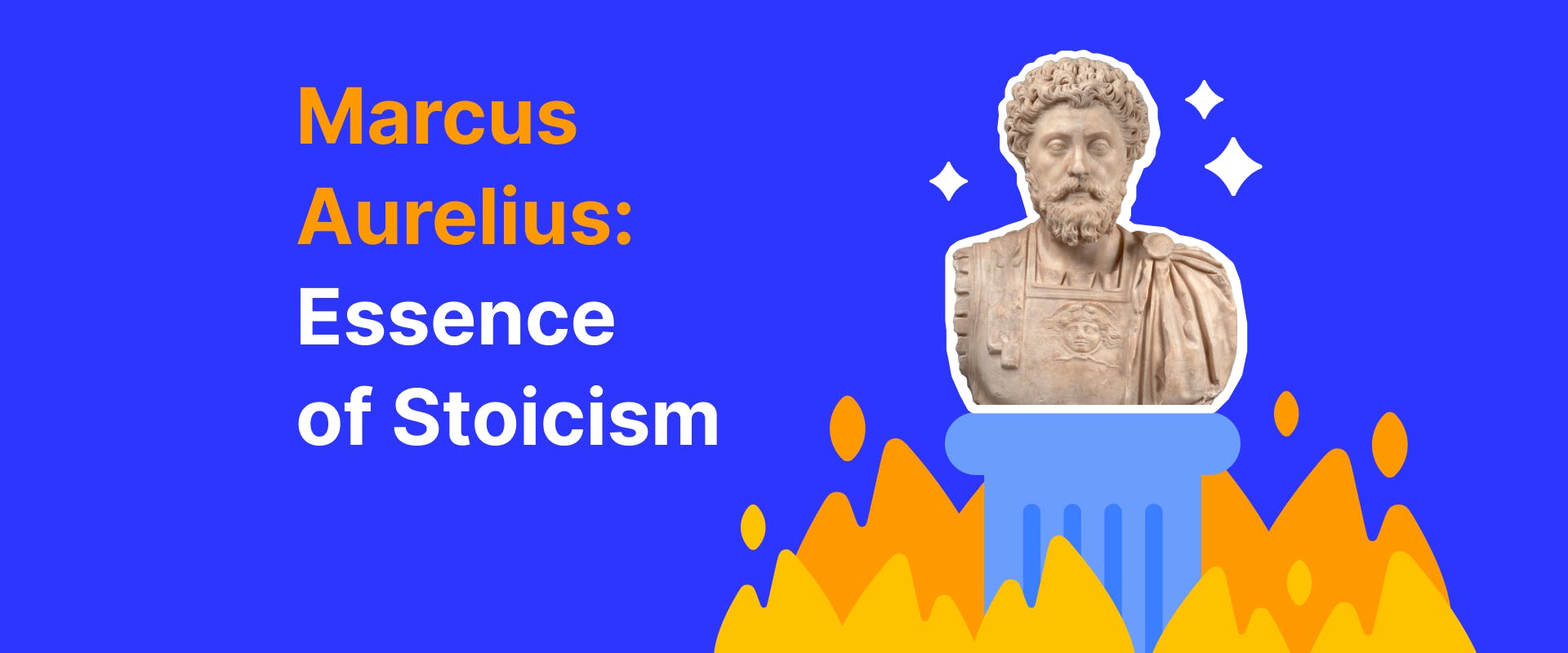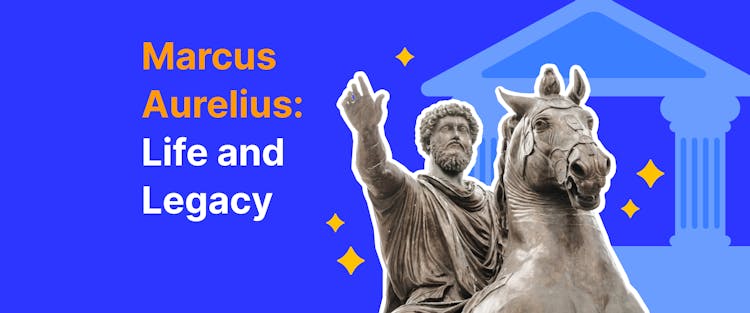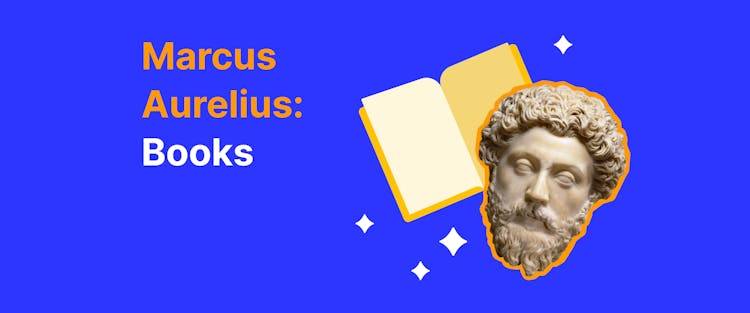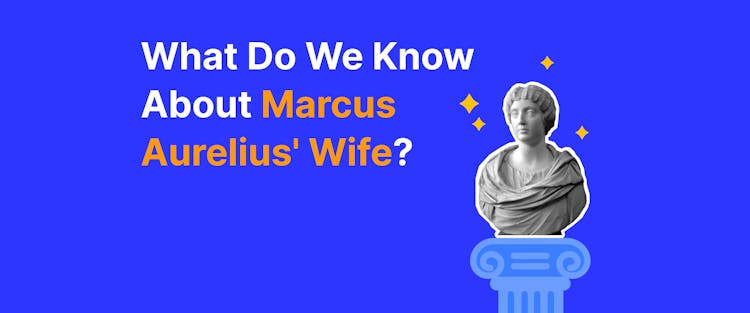Over the past few decades, interest in Stoicism has grown steadily in the Western world. The Stoic tradition confidently occupies its shelf in nonfiction/self-help literature, clearly marking its presence in modern psychotherapy and personal development methods.
Modern Stoicism is a simplified version of ancient philosophy, stripped of its cosmology and other elements that would seem unacceptable to a contemporary audience. Stoicism's current followers often refer to the works of Stoic writers, particularly Marcus Aurelius, for guidance and inspiration. He became the face of modern Stoicism. Like the rest of the late Stoics, Marcus Aurelius, as a Roman emperor, was primarily interested in ethics. However, the philosophical background that sometimes appears in the text of Marcus Aurelius reveals a completely "orthodox" Stoic with appropriate ideas about the cosmos, the nature of reality, and the theory of knowledge. Despite the author's excellent education and high social position, "Meditations" is a "very human" and accessible book.
Core Stoic principles as portrayed by Marcus Aurelius
The last emperor of the Golden Age
Late Stoia, or Roman Stoicism, completes the development of the Stoic philosophy in antiquity. Stoicism covered broad layers of the educated Roman public - scientists, politicians, and writers. From the point of view of philosophical evolution, the Late Stoya is the period of the most remarkable stratification of the teaching, as well as its transformation from dry treatises to diatribes of a moral and religious nature, enriched with personal insights. Seneca, Epictetus, and Marcus Aurelius Antoninus are the most prominent Stoic philosophers. Today, their works constitute a kind of "canon" of Stoicism. They are read, studied, and lived by thousands of people worldwide. Imperator Caesar Marcus Aurelius Antoninus Augustus, the last emperor of the Golden Age in ancient Rome, also shared the opinion of the Stoics. It was a historical time of five good emperors (Nerva, Trajan, Hadrian, Antoninus Pius, and Marcus Aurelius.)
Moral values
The central theme, the leitmotif of his works, is the perishability and futility of existence. Time appears to him as a flow, carrying into infinity. Human life, being only a tiny drop of this stream, looks extremely insignificant and miserable. Since moral values were the highest for the Stoics, aesthetic values had to be subordinated to them. The Stoics traditionally defined beauty as including both moral and physical beauty. But, of course, they placed inner beauty much higher.
Human values such as courage, will, maturity in judgment, and readiness to serve the state and the people place great weight. These are the moral guidelines that a man should follow throughout his life. This system also has "anti-values": wealth, indulging one's desires, pursuing pleasure, etc.
Harmony with nature
Marcus Aurelius wrote in "Meditations":
"Pass through this brief patch of time in harmony with nature, and come to your final resting place gracefully, just as a ripened olive might drop, praising the earth that nourished it and grateful to the tree that gave it growth."

In understanding the Stoics, nature is intelligent, harmonious, and divine. Therefore, a person's highest perfection is adapting to this universal harmony. Life must first be in harmony with the nature of man himself, but then it will be in harmony with nature in general because nature is governed by one law that does not exclude man. Virtue lies in this coordinated life. Living virtuously and living according to nature are the same. Life by nature simultaneously follows reason.
From this perspective, the reason was, for the Stoics, a measure of behavior because it rules not only man but also the entire cosmos, and, therefore, it constitutes the link between man and the cosmos, between human virtue and the law of nature. Like the Epicureans, the Stoics saw the main task of philosophy as constructing ethics based on physics and the doctrine of knowledge-logic.
Marcus Aurelius's attitude towards Christians
The relationship between Stoicism and Christianity is quite complex. On the one hand, numerous fragments in the texts of the Stoics, even with a superficial perception, are sometimes surprisingly consistent with Christian dogmas. It is believed that during the second and third centuries, certain "righteous pagans" had a substantial impact on Christian literature that almost all the church fathers of that period were similarly influenced, including Augustine, Origen, Tertullian, Novatian, Lactantius, Ambrose, Jerome, etc.
However, since the 4th century, Christian authors' attitudes towards the Stoics have changed. Stoya ceases to sound like a self-sufficient school. Much more is said about individual Stoics. Moreover, they are viewed not as adepts of a complete philosophical system but as bearers of "universal wisdom."
Roman emperor Marcus Aurelius grappled with a devastating Antonine plague epidemic that claimed the lives of many Roman citizens and severely weakened the empire's productivity. Seeking solace from divine intervention, the emperor turned to the gods to avoid further calamity.
As Christianity began to gain traction in the Roman Empire during the second century, it became crucial to track the evolution of this new doctrine and analyze the emperor's stance towards its followers. As Christianity spread, it diverged from traditional Roman polytheism, advocating instead for worshiping a singular deity, the Creator of heaven and earth.
The Roman populace, steeped in the traditions of polytheism, resisted the teachings of Christianity, fiercely defending their ancestral religion. This resistance led to escalating tensions, prompting the emperor to intervene. Christians interpreted these actions as persecution—being targeted for their faith in Christ. Historical records corroborate the execution of the Christian Justin, reportedly on the recommendation of the consul Rusticus. He was a famous Stoic and a teacher of Aurelius. In his efforts to uphold the Roman religion and ensure the reverence of traditional gods, Marcus Aurelius found himself at odds with Christianity, which he regarded as mere "superstition."
Philosophical teachings and quotes from Meditations
Some quotes from the emperor of Rome, Marcus Aurelius, brightly show the Stoic teachings in his "Meditations".
About sufferings
"Stay calm and serene regardless of what life throws at you."

Acceptance of other people
"Whatever anyone does or says, for my part I’m bound to the good. In the same way an emerald or gold or purple might always proclaim: ‘whatever anyone does or says, I must be what I am and show my true colors."

Loving nature
"Dwell on the beauty of life. Watch the stars, and see yourself running with them. Think constantly on the changes of the elements into each other, for such thoughts wash away the dust of earthly life."

Being grateful for life
"When you arise in the morning, think of what a precious privilege it is to be alive - to breathe, to think, to enjoy, to love."

"The soul becomes dyed with the color of its thoughts."

How to control anger effectively
"You shouldn’t give circumstances the power to rouse anger, for they don’t care at all."

The quality of a philosophy book is significantly influenced by its translation. The most appropriate translations of "Meditations" are Meditations: A New Translation by Gregory Hays, Meditations: with Selected Correspondence (Oxford University Press) – by Robin Hard, and Meditations (Penguin Classics) – by Martin Hammond. Here, we use quotes from Hammond.
Stoic rules for living according to Marcus Aurelius
It is not difficult to understand why modern Stoics revere Marcus Aurelius so profoundly. Current followers of Stoicism try to present this philosophy as a path to well-being in life, and they often show the theme that it is the path to fame and fortune, obviously because Marcus Aurelius was the Roman emperor. By default, he was as rich and famous as he could be. However, the ancient Stoics' traditional attitude to poverty was that people should be happy with what they had, regardless of whether they were rich or poor.
Modesty
Sôphrosunê (modesty) and moderation are viewed through Stoic desire principles. They involve being selective about where one directs one's attention and choosing what to embrace and resist. This manifests as self-control and restraint across all aspects of life. According to Stoic philosophy, happiness comes from managing desires, appreciating what one has, and not fretting over what is lacking. Marcus Aurelius emphasized finding contentment in every experience.
Focusing on the present moment
Marcus Aurelius emphasized the importance of focusing on the present moment rather than dwelling on the past or worrying about the future. A happy individual directs their energy towards living in the here and now, fully embracing each moment and appreciating what they have. This principle, central to Stoic philosophy, encourages mindfulness and helps cultivate a sense of calmness and understanding.
Two sides of human
However, Stoicism acknowledges negative emotions like lust, which are fixated on desires for the future. Lust, described as a foolish longing of the soul, prevents one from thoroughly enjoying the present moment. It often leads to fear, anger, resentment, and other harmful feelings fueled by irrational desires for things of little importance. Therefore, the highest goal in Stoicism is to live according to the nature of things.
Philosopher King Aurelius knew a lot about self-discipline. He believed that if people lived according to nature, they would become a rod, meaning they could fully control it in any situation. Fighting a hard battle, kneeling before the executioner, and dying of hunger, such a person will remain an unshakable bastion and, no less critical, absolutely free.
The Stoic philosophy of Marcus Aurelius sees humans as having two sides. We're busy with everyday life and chasing our desires, but we also work toward big goals for the future. However, Aurelius criticizes those who don't work for the greater good of society. Like other Stoics, he believes in a higher purpose for everyone. We all have a part of a greater intelligence inside us, and it's important to spend our lives striving for this higher goal.
Practical Stoicism for modern life:
These practical methods, derived from ancient Roman philosophy, can still contribute to personal growth and self-improvement in the modern era.
Acceptance
The philosophy of Stoicism insists on refraining from negative emotions—anger, wrath, hatred—and also in cases when a person is treated unfairly and indecently. Marcus Aurelius wrote about showing indifference when someone says or does something terrible against someone. Since Stoicism is based on the philosophy of Socrates from Athens, it is believed that a person does evil due to ignorance (guided by wrong attitudes).
We often behave as self-confident creatures, believing that we can fully influence and control the course of events. Modern man's many mental problems, fears, phobias, and disappointments are provoked precisely by his excessive desire to keep everything under control. However, the Stoics clearly understood that man is omnipotent; objective reality is not under human influence.
Mindfulness
A new trend, mindfulness, is gaining popularity. It is a spacious, balanced awareness of the present or moment-to-moment awareness of our thoughts, feelings, bodily sensations, and environment with complete acceptance and nonjudgment. Clear understanding includes the ability to perceive phenomena without the influence of mental states that distort them (such as moods and emotions).
Courage
Negative experiences confuse the human spirit. People worry about things they cannot control, filling themselves with senseless anxieties. Courage means being true to yourself, having confidence, and enthusiastically embracing life. It's linked to traits like generosity and perseverance. In Stoic philosophy, courage is seen as a positive emotion that comes with rational thinking and a balanced outlook on life.
Unstable times
Stoicism philosophy especially flourished in periods of historical upheaval. The emergence and development of Stoic teaching occurred for a somewhat active and unstable historical time - late antiquity, marked by the collapse of the polis system, the creation of the mighty Roman Empire, and significant socio-political conflicts. This is when people lose confidence in the future and experience a crisis of self-identification. Four years ago, the COVID pandemic became a booster of Stoicism. The meditations of ancient thinkers become actual for modern people again. How can we overcome new challenges in our lives?
After Marcus Aurelius, Stoicism's popularity gradually faded, leading to the revival of Plato’s teaching and Christianity. The next peak of popularity is associated with the latest projects of reinterpretation of Stoicism, presented by such modern authors as Donald Robertson, Massimo Pillucci, Gregory Sadler, William Irwin, Ryan Holiday, and others.
Ryan Holliday's book The Daily Stoic presents 12 principles for overcoming obstacles and achieving greater life satisfaction. It is designed to be read one page a day. The techniques and exercises mentioned in the book reflect the views of thinkers of ancient times: the emperor Marcus Aurelius, the dramatist Seneca, and the ancient Greek philosopher Epictetus.
Meet other Stoics
Epictetus
Epictetus, one of the later representatives of Greek Stoicism, was initially enslaved. He condemned the desire for wealth. God is the creator of the world and still controls it. He is infinitely good and wise. The rays of his sound wisdom are reflected in the human mind. And therefore, a person's true purpose is to develop this divine basis in himself - the logos, to fulfill the will of God, to increase his glory. According to Epictetus, human beings are the only ones in the world who possess the logos, which sets the goal of life - finding virtue consistent with reason. At its maximum, this is the model of existence that represents the life of philosophers. Understanding and correcting ideas come with understanding the world and man's true nature.
Seneca
"I know that I know nothing."
Seneca is the author of this phrase. He generally agrees with all the main postulates of Stoicism: humble acceptance of fate, focus on internal improvement, and willingness to follow higher ideals. Thus, his entire philosophical system is a set of rules and dogmas that should help a person live a correct and good life.

Incorporating Stoicism into daily life:
Philosophy aims to transform behavior, lifestyle, and moral attitudes. Philosophy demanded a radical conversion, a transformation of the way of being in the world, writes the historian of philosophy Pierre Hadot in his book The Inner Citadel: The Meditations of Marcus Aurelius.
We can and should train our minds, so we study philosophy. However, the Stoics rightly believed that philosophy is not only theoretical. You can't learn to ride a bike by listening to someone tell you how to do it; nor can one become virtuous by merely reading Epictetus or Seneca. It takes practice.
Don't worry about the future, and don't regret the past. The future has not yet arrived, and the past is beyond your control. Only the present demands your attention—you should make important decisions about how you plan to spend this day and every day in the present moment.
Life throws us its adventures. To dull the pain of disappointment, you can form a reasonable idea of what might happen and avoid wild dreams. This ability allows you to develop a calm attitude to life.
Final thoughts
In fact, the difficulties we face give us strength. All the circumstances of our lives allow us to test and improve our integrity. People of antiquity thought about life, its values, and how to live it worthwhile. We have a unique opportunity to learn from the experience of the past, which is so organically woven into the present. The Headway app allows you to immerse yourself in the Stoic thoughts of Marcus Aurelius and take lessons for your daily life.
Frequently Asked Questions
Was Marcus Aurelius a Stoic?
Marcus Aurelius Antoninus entered world history as an outstanding Roman emperor and Stoic philosopher. He was deeply influenced by Stoic philosophy, particularly by the works of Epictetus. Marcus Aurelius' "Meditations" are a collection of his reflections and philosophical thoughts, heavily influenced by Stoic principles.







